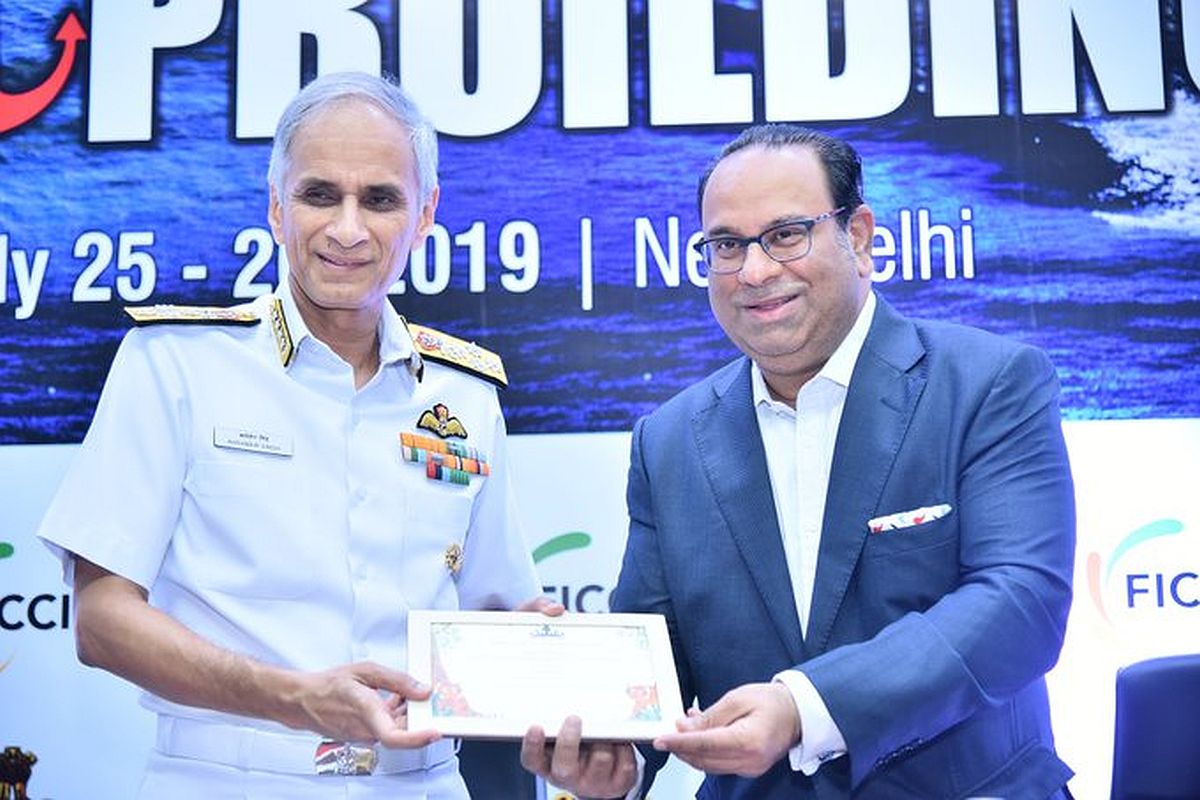Navy chief Admiral Karambir Singh on Thursday said a lot of resources have been shifted from other arms to China’s PLA Navy in line with their intention to become a global power.
He was responding to a question on China’s Defence ‘White Paper’ reiterating growing emphasis on The People’s Liberation Army (PLA) Navy.
Advertisement
China on Wednesday released a ‘White Paper’ on its overall defence strategy which, among other things, speaks about the efforts being made by the country’s armed forces to promote stability with India and create conditions for peacefully resolving the Doklam stand-off which had brought the two countries to the brink of a full-fledged war in 2017.
The paper, highlighting the military reforms of the country, talks at length about China’s ties with major powers and countries in the neighbourhood and how the armed forces were defending the country’s sovereignty and integrity.
Indian Navy chief Admiral Singh said there was a necessity to watch carefully how the PLA unfolds its plan and see how India can respond within its budget and constraints.
“We require long-term fiscal support to build a Navy and that is the only way we can plan,” he told media after an international seminar on Nation Building through Shipbuilding’ organized by FICCI.
The armed forces “strive to promote stability and security along the border with India, and take effective measures to create favourable conditions for the peaceful resolution of the Donglang (Doklam) stand-off,” said the paper, titled ‘China’s National Defence in the New Era’.
India and China were locked in a face-off for over two months in the Doklam area of the Sikkim sector in 2017.
The 73-day Doklam standoff which began on June 16 over PLA’s plans to build a road in the area claimed by Bhutan, ended on August 28 following mutual agreement between India and China.
China claimed it was constructing the road within their territory which India had objected saying the territory does not belong to China.
Relations between the two neighbours started getting normal after Prime Minister Narendra Modi and Chinese President Xi Jinping met for an informal summit at the Chinese city of Wuhan in April 2018. The two leaders are scheduled to hold another informal summit in October in India.
On the Modi-Xi informal summit, the paper says: “To implement the important consensus reached by the leaders of China and India, the two militaries have exchanged high-level visits and pushed for a hotline for border defence cooperation and mechanisms for border management and border defence exchanges.”
Talking about the challenges ahead for China, it mentions that global military competition is intensifying, with major countries around the world “readjusting their security, military strategies and military organisational structures”. It says that India and other countries like UK, France, Germany and Japan are re-balancing and optimising the structure of military forces.
Further, on being asked about a multi-crore deal with the US for 24 MH-60 multi-role helicopters, the Navy chief said the procedure for Letter of Request and Letter of Acceptance is on for the project. He said the deal is expected to be signed by the end of this year.











